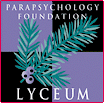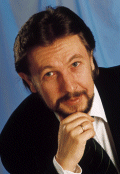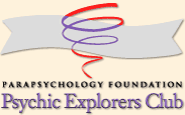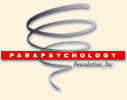 |
 |
| THE BIOGRAPHICAL DICTIONARY OF PARAPSYCHOLOGY GERD HÖVELMANN 
Gerd Hövelmann is the PF International Affiliate for Germany. The following informal biography was written for a booklet distributed to other International Affiliates. Each affiliate was asked five questions about their background and interest in the field, the situation of parapsychology in their countries, and about their hopes for the future. A more formal biography will be posted in the coming months. From Mr. Hövelmann ... I was born in Siegen, Germany. I studied liguistics, literature and psychology at Marburg University. I read more than 10 languages although I competently speak only 2 of them. I have done research on nonverbal community, the geography of German dialects, the theory of evolution, proto-physics and the conceptual foundations of physics, cognition and manned space flight. I have about 150 scholarly articles in 5 languages in areas such as the philosophy and history of science, the philosophy of language, linguistics, semiotics, cultural history, psychology, parapsychology, biology, physics, and space science. I am founder, proprietor, and managing director of several firms, including a public-relations agency, a translations office, an auction company (1993-1998), and a retail company. In parapsychology I have been a member of the American Society for Psychical Research, the Parapsychological Association, Wissenschaftliche Gesellschaft fur Forderung der Parapsychologie (the secretary from 1988 to 1996), the Society for Scientific Exploration, and the Society for Psychical Research. I am also a member of the Language Origins Society and the International Astronautical Federation, a scientific consultant to the European Branch of CSICOP and on the Board of Directors of the Synchronicity Research Unit, among other things. Unlike, I assume, most other persons active in parapsychology, I have never had any experience that might be described as "psychic" except, perhaps, for what now I am tempted to reconstruct as an OBE during a life-threatening situation at the age of 3. As far as I am concerned, parapsychology allows us to put scientific and philosophical conceptualizations, distinctions, and methods to the test. What happens to those conceptualizations, distinctions, and methods when we approach the fringes of currently accepted scientific knowledge? Are they still valid? Can they sufficiently deal with anomalies? Or do they need modifications? Can the conventional methods of science and philosophy be applied to unconventional problems and questions? What, if they can't? On the other hand, parapsychology might well stimulate the creation and application of novel scientific procedures and methodologies that, ideally, might prove to be fruitful for other scientific disciplines as well. Thus, to me, parapsychology is and has always been an intellectual and methodological rather than an ideological or metaphysical challenge. In addition, the varied, multiple relations that exist between parapsychology (and its precursors) on the one hand and the history of culture, science, and ideas on the other contain many virtually unrecognized treasures that still wait to be raised. During the 1950s through the 1980s, parapsychology in Germany used to be threatened by a particularly militant kind of would-be skepticism. As in other countries, that kind of strong opposition has been virtually silenced during the last decade. The majority of organized skeptics seem to have turned to easier targets. At the same time, mainstream science has started to take a somewhat closer look at the results and methods supplied by parapsychology. The fact that, thanks to Hans Bender's decade-long work, the Freiburg IGPP inherited a fabulous amount of money in the early 1990s that can be partly spent on parapsychology-related mainstream projects obviously and understandably has contributed to that moderate revival of mainstream interest in the paranormal. Despite recent budget cuts, the IGPP still does have the potential for conducting responsible in-house parapsychological research and, probably, also for supporting to some extent the work of other researchers. I hope we will see more of that in the future. Submitted June 2001 For Hövelmann’s report of the 2005 Parapsychological Association Convention, click here. |
 |

|
 www. parapsychology. org |
||